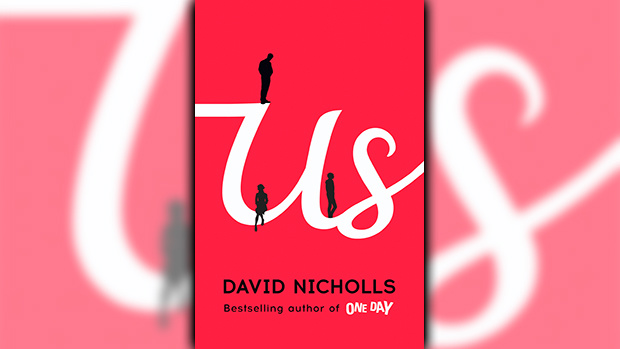Stephanie Jones: Book Review - Us by David Nicholls
- Publish Date
- Friday, 10 October 2014, 12:00AM

- Author
- By Stephanie Jones
Two thousand and nine’s One Day, former screenwriter writer David Nicholls’ third novel, was the kind of success few authors or publishers dare to dream of, and the definition of a hard act to follow. Us constitutes a rebuttal of sorts to the deathless romantic love of the earlier work, and, in a parallel universe, an answer to what might have been. Had Dexter and Emma seen their love through to a natural conclusion of long-term cohabitation and the raising of children, might they have ended up like Douglas and Connie?
This pair has been married for close to half a century when Connie rouses her husband in the middle of the night and quietly informs him that she thinks the marriage has run its course. It is not just the news but its timing that discombobulates Douglas. The family is about to embark on a Grand Tour of Europe as a farewell to their university-bound only son Albie. The trip has been designed by Douglas with scrupulous care and the mindfulness of a Henry James chaperone. Culture will be experienced and enjoyed, come hell or high water!
As he reflects on his failings and his bafflement that he ever persuaded the animated, exotic Connie to marry him, and his wife and son tease him about the itinerary – ”Why isn’t this laminated, Dad?” – and a roiling undercurrent of tension and grievance flows into view. Douglas, a mild-mannered scientist who believes the responsibility of a parent is to shape his child, avows that there is no such thing as natural talent, a view that can only put him on a collision course with his creative amateur-photographer son.
Connie, herself of an artistic bent, is their son’s ally and the more empathetic parent. It’s hard to see how a fulfilling European cultural adventure can be shared by three people with vanishingly little in common, and on a journey that begins in Paris and is intended to conclude in Barcelona, taking in a half-dozen great cities on the way, they make it only as far as Amsterdam before fracturing completely. The hotel breakfast scene that precipitates the implosion will sting the psyche of any reader who has been publicly humiliated by a family member.
A brief precis of the plot cannot begin to acknowledge the scale of what Nicholls has achieved with Us, which has been longlisted for the 2014 Man Booker Prize. In his exploration of a man in crisis amid the relics and ruins of the Old World, he investigates how much of life happens when we are making other plans: the early days of the couple’s romance, the death in infancy of their first child, the decision to take a job low on passion and high on economic return, Douglas’ nagging fear that Connie has been dulled by life with him.
Minor characters serve to bring the family’s schism into sharp relief. A bawdy New Zealand street performer seduces Alfie and incites Douglas’ tendency to purse-lipped disapproval; an open-hearted Danish dentist offers a glimpse of another version of life; Connie’s charismatic ex-boyfriend presents, troublingly, as Douglas’ polar opposite.
Above all, Nicholls makes us empathize. Some might say it’s melodrama, but if so it’s awfully human. When Douglas reflects that “I wasn’t aware of having been relaxed at any time in my entire life” and then wonders self-defensively, “To be taut as a wire . . . conscious of the dangers around you – wasn’t that to be admired?”, it’s a sentiment that provokes both pity and a desire to pull him into full, confident realization. Seeing how Nicholls wrenches his everyman out of the flames with thoughtful, perceptive and beautifully written prose is an unalloyed delight.
Take your Radio, Podcasts and Music with you

